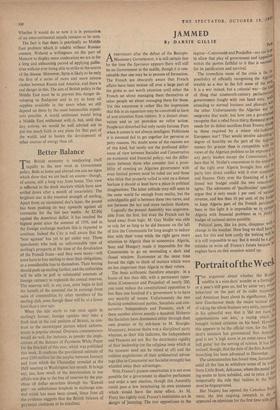Better Balance
THE British economy is readjusting itself rapidly to the new twist in Government policy. Both at home and abroad one can see signs which show that we are back on course—though, of course, still a long way from home. This view is reflected in the stock markets which have now settled down after a month of uncertainty. The brightest star is the renewed strength of sterling. Apart from an occasional day's lapse, the pound has been pushing its way upwards against all currencies for the last two weeks. At $2.80i against the American dollar, it has reached the highest point since the summer of 1956, and in the foreign exchange markets this is expected to continue. Indeed the City is well aware that the 'bear squeeze' has yet to get under way. Those speculators who took an unfavourable view of sterling's prospects at the time of the devaluation of the French franc—and they were many—will soon have to buy sterling to meet their obligations, at a considerable loss to themselves. Their buying should push up sterling further, and the authorities will be able to pull in substantial amounts of foreign currency to replenish the central reserves. The reserves will, in any case, soon begin to feel the benefit of the seasonal rise in earnings from sales of commodities by other members of the sterling club, even though these will be at a lower level than a year ago.
When the tide starts to run once again in sterling's favour, foreign opinion may take a fresh look at the real position of Britain, in con- trast to the stereotyped picture which unfortu- nately is popular abroad. Overseas commentators would do well, for instance, to ponder the impli- cations of the Balance of Payments White Paper for the first half of this year, which was published this week. It confirms the provisional estimate of over £200 million for the surplus between January and June which the Chancellor revealed at the IMF meeting in Washington last month. It brings out, too, how much of the deterioration in our affairs was due to the loss of reserves by the pur- chase of dollar securities through the 'Kuwait gap'—an unfortunate loophole in exchange con- trol which has since been closed, Since June all the evidence suggests that the British balance of payments continues to be excellent.


































 Previous page
Previous page